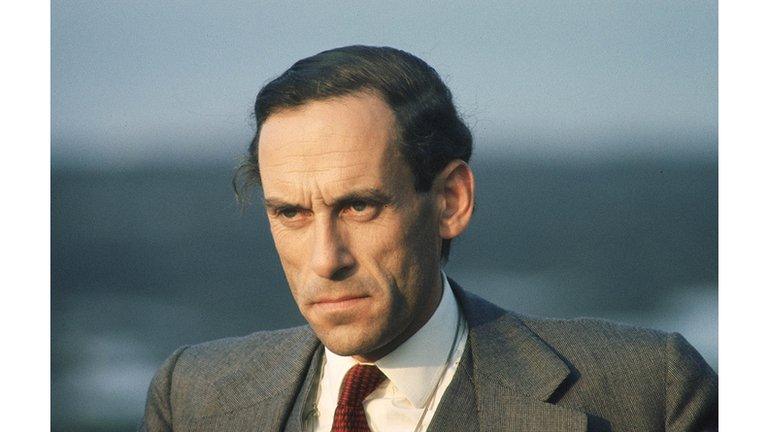Jeremy Thorpe: Was there an establishment cover-up?
- Published
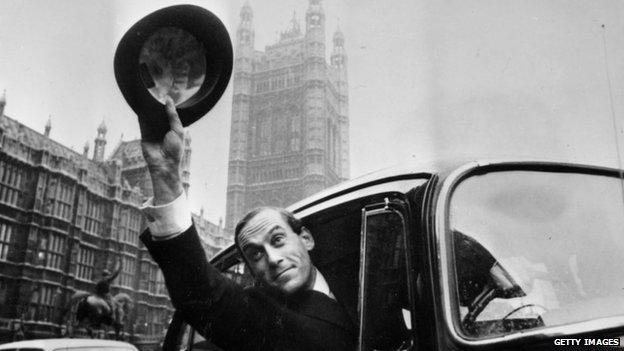
Jeremy Thorpe resigned as Liberal leader in 1976 to fight allegations against him - of which he was acquitted
Jeremy Thorpe, the former Liberal Party leader who died this week at the age of 85, led a life that combined major political achievements with persistent rumours of scandal.
This culminated in a famous and dramatic trial for conspiracy to murder in 1979 - and his acquittal.
The verdict of the jury was that there was no such conspiracy to kill Norman Scott, the model who claimed to have had a homosexual relationship with Mr Thorpe. But mysteries have remained about how the authorities handled allegations about Mr Thorpe during his political career.
These questions are investigated in a BBC Radio 4 documentary, Jeremy Thorpe: The Silent Conspiracy, which examines suggestions of an establishment cover-up.
Presented by Tom Mangold, who reported on the Thorpe case for the BBC at the time, it contains material from the 1970s that has never been broadcast before, along with new evidence.
One particularly strange puzzle arises from the account of Dennis Meighan, who provided the gun that was used to shoot Mr Scott's dog, Rinka - an incident in which Mr Scott says he feared for his own life.
Speaking in a broadcast interview for the first time, Mr Meighan discloses that he himself was asked to kill Mr Scott by a man who, he was told, represented a Mr Big in the Liberal Party.
'Left out'
Mr Meighan says that he initially agreed to carry out the plan before changing his mind. However, after he confessed this to the police, he was surprised when they later presented him with a prepared statement for him to sign.
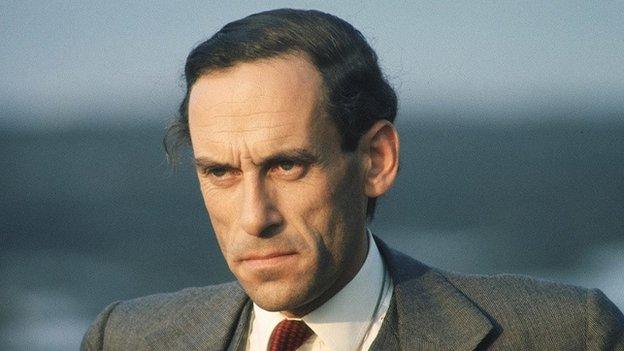
The Metropolitan Police looked into Mr Thorpe's private life
"I read the statement, which did me no end of favours, but it did Jeremy Thorpe no end of favours as well, because it left him completely out of it.
"So I thought, 'Well, I've got to sign this'. It just virtually left everything out that was incriminating, but at the same time everything I said about the Liberal Party, Jeremy Thorpe, etcetera, was left out as well."
This meant that Mr Meighan has never had to appear in court and explain his role in events.
The complex circumstances surrounding Mr Thorpe arose out of a period when homophobia was a powerful force and male homosexuality was, until 1967, a criminal offence.
This situation created a significant threat of blackmail and security risks for prominent men who had gay relationships. Interviews conducted in the 1970s reveal the attitudes of the time.
Police investigation
Sir Ranulph Bacon was Chief Constable of Devon when Mr Thorpe was first elected MP for North Devon in 1959. He is now dead, but in 1979 he told the BBC in an interview not then broadcast: "I was one who insisted on pursuing all homosexual complaints."
He said that his force carried out an inquiry into whether Mr Thorpe had "any homosexual association" at the request of the security services, after a report from the FBI about an indiscretion with a rent boy when the politician had visited the US.
The Metropolitan Police later conducted its own investigation into Mr Thorpe's sexuality. However, it was told nothing of the security file on the subject. Asked to explain why, Sir Ranulph said: "Unless somebody wanted to cover something up, I can't really give you an answer to that."
The Met detective who investigated Mr Thorpe in the 1960s about the allegations of criminal homosexuality never interviewed him. Robert Huntley told the BBC in 1979: "Do you think that a man of that calibre is going to admit that type of conduct? I don't think so."
Thus Mr Thorpe was not subject to the police actions that at the time would have affected men of apparently lesser calibre.
Jeremy Thorpe: The Silent Conspiracy is broadcast on BBC Radio 4.
- Published4 December 2014
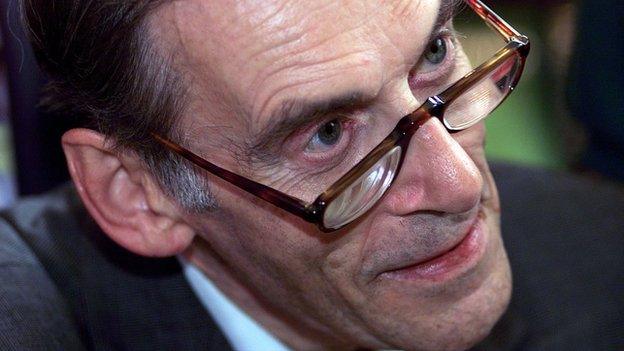
- Published4 December 2014
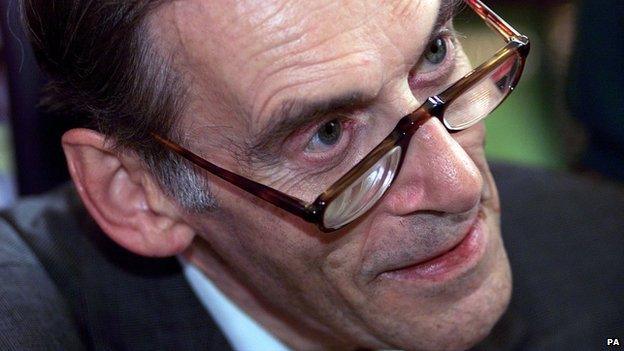
- Published4 December 2014
